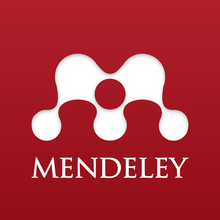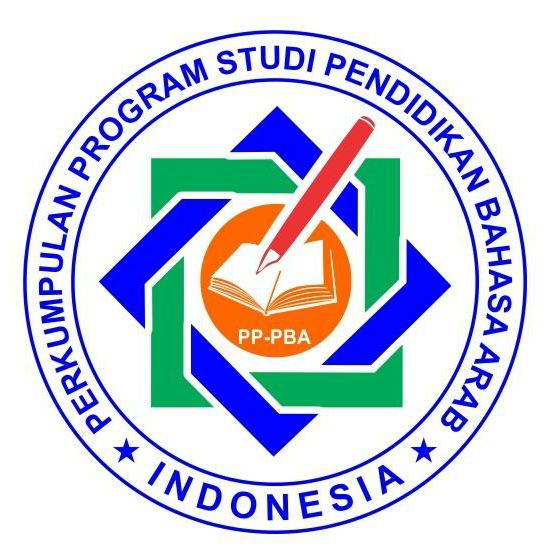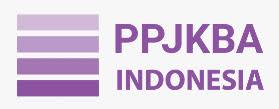Taṭbīq Ṭarīqah Ĥalli al-Musykilāt litarqiyyah al-Fuđûl al-‘Ilmī wa Mahārāt al-Lugah al-‘Arabiyyah ladai Ṭalabah al-Madrasah
DOI:
https://doi.org/10.37680/aphorisme.v5i1.5548Keywords:
Problem Solving, MTs Takhassus Al-Qur'an, Al-Falahiyah, Language SkillsAbstract
This research focuses on the application of problem solving-based learning methods and is designed to encourage students to actively participate in the learning process through solving real problems. A qualitative approach was used in the research design, as the study included 40 students as a full number for the research, and 20 of them were selected as a sample. Data were collected through interviews and observations with Arabic language teachers and students. The researchers used various data collection techniques to analyze scientific curiosity and develop students' Arabic language skills. Data were analyzed using qualitative methods to evaluate the effectiveness of the problem-solving method in improving students' skills and scientific curiosity. The research results show that problem solving-based learning methods significantly increase students' curiosity, which is demonstrated through their active participation in class and further exploration of the lesson material. Students' proficiency in Arabic has also increased, as can be seen from their ability to complete assignments and understand the concepts taught.
References
Albahuoth, H. (2023). Effectiveness of flipped classroom in developing 11th graders’ grammatical competences in Arabic. Interactive Learning Environments, 31(2), 1089–1105. https://doi.org/10.1080/10494820.2020.1821714
Aniati, I. (2021). أسلوب الأمر وتعليمه للناطقين بغير اللغة العربية. Thariqah Ilmiah: Jurnal Ilmu-Ilmu Kependidikan Dan Bahasa Arab, 9(1), 45–60. https://doi.org/10.24952/thariqahilmiah.v9i1.3564
Anshari, M. (2018). Akuisisi Bahasa Arab Pada Tataran Gramatika Dan Rasa Bahasa Bagi Pembelajar Non Arab. Al-Fathin: Jurnal Bahasa Dan Sastra Arab, 1(01), 61. https://doi.org/10.32332/al-fathin.v1i01.1192
Aprillia, L., Halimah, Badriyah, L., & Wilita, I. (2023). Investigation of Causal Factors Is Disshort Arabic Language Lessons. International Journal of Education and Teaching Zone, 2(2), 299–309. https://doi.org/10.57092/ijetz.v2i2.73
Ayoub, A. E. A., Abdulla Alabbasi, A. M., Alsubaie, A. M., Runco, M. A., & Acar, S. (2022). Enhanced Open-Mindedness and Problem Finding Among Gifted Female Students Involved in Future Robotics Design. Roeper Review, 44(2), 85–93. https://doi.org/10.1080/02783193.2022.2043500
Bani-Hamad, A. M. H., & Al-Kalbani, M. S. A. (2024). Fermi Problem-Based Learning with Artificial Intelligence: Is It Effective to Develop United Arab Emirates Cycle Three Students’ Twenty-First Century Skills? (pp. 113–125). https://doi.org/10.1007/978-3-031-52280-2_8
Belanisa, F., Amir, F. R., & Sudjani, D. H. (2022). E-modul Interaktif Sebagai Media Pembelajaran Bahasa Arab Untuk Meningkatkan Motivasi Siswa. Tatsqifiy: Jurnal Pendidikan Bahasa Arab, 3(1), 1–12. https://doi.org/10.30997/tjpba.v3i1.4754
Budiman, A., Aprilia, A., & Zain, A. L. (2023). The Implementation Problem Solving Methods of Learning Arabic Lesson. Aphorisme: Journal of Arabic Language, Literature, and Education, 4(2), 1–20. https://doi.org/10.37680/aphorisme.v3i2.3462
Chafidzoh, T. F. (2020). Strategi Meningkatkan Pemerolehan Bahasa Arab dengan Memperhatikan Tipe Kepribadian Siswa. Al-Ma’rifah, 17(1), 48–57. https://doi.org/10.21009/almakrifah.17.01.05
Dawe, H. (2020). Learning achievement goal theory and teaching students legal problem solving. The Law Teacher, 54(2), 249–260. https://doi.org/10.1080/03069400.2019.1657733
Galal Elsayed, H. A., Chaffar, S., Brahim Belhaouari, S., & Raissouli, H. (2022). A two-level deep learning approach for emotion recognition in Arabic news headlines. International Journal of Computers and Applications, 44(7), 604–613. https://doi.org/10.1080/1206212X.2020.1851501
Hidayat, Y. (2018). Teori Perolehan Dan Perkembangan Bahasa Untuk Jurusan Pendidikan Bahasa Arab. Maharat: Jurnal Pendidikan Bahasa Arab, 1(1). https://doi.org/10.18196/mht.113
Isnaini, N., & Huda, N. (2020). Pengembangan Media Pembelajaran Kosakata Bahasa Arab Berbasis Permainan My Happy Route Pada Siswa Kelas Viii Mtsn 10 Sleman. Al Mi’yar: Jurnal Ilmiah Pembelajaran Bahasa Arab Dan Kebahasaaraban, 3(1), 1. https://doi.org/10.35931/am.v3i1.156
Juryatina, J., & Amrin, A. (2021). Students’ interest in Arabic language learning: the roles of teacher. Journal of Educational Management and Instruction (JEMIN), 1(1), 40–49. https://doi.org/10.22515/jemin.v1i1.3459
Pamessangi, A. A. (2022). Developing Arabic Language Textbooks Based on Religious Moderation in Madrasah. AL-ISHLAH: Jurnal Pendidikan, 14(1), 147–156. https://doi.org/10.35445/alishlah.v14i1.1407
Pradini, A. I. O., Abdurrahman, M., & Nurmala, M. (2023). The Effect of Quantum Teaching Method on Motivation and Arabic Language Learning Outcomes (Literature Study). Edunesia: Jurnal Ilmiah Pendidikan, 4(3), 1413–1430. https://doi.org/10.51276/edu.v4i3.519
Rosyidi, A. W., & Ni’mah, M. (2011). Memahami Konsep Dasar Pembelajaran Bahasa Arab (1st ed.). UIN-Maliki Press.
Suhirman, S., & Ghazali, I. (2022). Exploring Students’ Critical Thinking and Curiosity: A Study on Problem-Based Learning with Character Development and Naturalist Intelligence. International Journal of Essential Competencies in Education, 1(2), 95–107. https://doi.org/10.36312/ijece.v1i2.1317
Trentman, E. (2013). Imagined Communities and Language Learning During Study Abroad: Arabic Learners in Egypt. Foreign Language Annals, 46(4), 545–564. https://doi.org/10.1111/flan.12054
van Schijndel, T. J. P., Jansen, B. R. J., & Raijmakers, M. E. J. (2018). Do individual differences in children’s curiosity relate to their inquiry-based learning? International Journal of Science Education, 40(9), 996–1015. https://doi.org/10.1080/09500693.2018.1460772
Downloads
Published
Issue
Section
License
Authors who publish with this journal agree to the following terms:
Authors retain copyright and grant the journal right of first publication with the work simultaneously licensed under a Creative Commons Attribution-NonCommercial 4.0 International License that allows others to share the work with an acknowledgement of the work's authorship and initial publication in this journal.
Authors are able to enter into separate, additional contractual arrangements for the non-exclusive distribution of the journal's published version of the work (e.g., post it to an institutional repository or publish it in a book), with an acknowledgement of its initial publication in this journal.
Authors are permitted and encouraged to post their work online (e.g., in institutional repositories or on their website) prior to and during the submission process, as it can lead to productive exchanges, as well as earlier and greater citation of published work.




.jpg)


